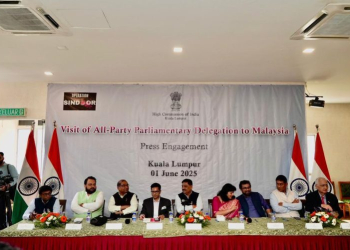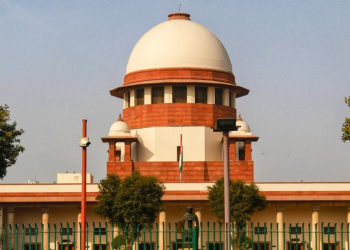Mumbai: The Bombay High Court on Wednesday quashed the Maharashtra FDA’s order cancelling the licence of pharma giant Johnson & Johnson to manufacture its baby powder from the Mulund plant.
A division bench of Justice Gautam S. Patel and Justice Shivkumar G. Dige termed the Food & Drugs Administration’s action as unreasonable and therefore “arbitrary” – while setting it aside, paving the way for J&J to resume production and sell its baby powder.
It observed that it is not reasonable that the moment one sample from a batch is found to be of substandard, the company’s manufacturing licence is cancelled.
“This seems to us to be extremea and there’s nothing to show that FDA has consistently adopted such a stringent standard with other J&J products or other manufacturers,” said the judges.
In a drastic move on September 15, 2022, the FDA Joint Commissioner had cancelled J&J’s licence to manufacture baby powder products and also told the company to recall its market stocks, after which the company challenged the decision in the high court.
J&J had come under the FDA radar in November-December 2018 after random checks in Pune and Nashik when it collected samples for testing.
When an October 2018 batch sample was tested again after 11 months (September 2019), its pH level was found to be higher than the permissible levels, but J&J was informed about it in January 2020 and asked for a re-test.
However, the FDA issued a show-cause notice to J&J after over a year in February 2021, gave a hearing in July 2022, and ordered cancelling of its manufacturing licence in September 2022.
Observing that while a watchdog like FDA is necessary, Justice Patel and Justice Dige said that proceedings cannot be protracted with a “harsh delay” like this for weeks and months, and the watchdog must do its job properly to guard and protect the interests of the consumers.
The judges also frowned at “the now usual excuse of Covid” on the delays for a test on a sample collected in October 2018 – well before anyone could imagine Covid – and the delays continued until 2022.
(IANS)












